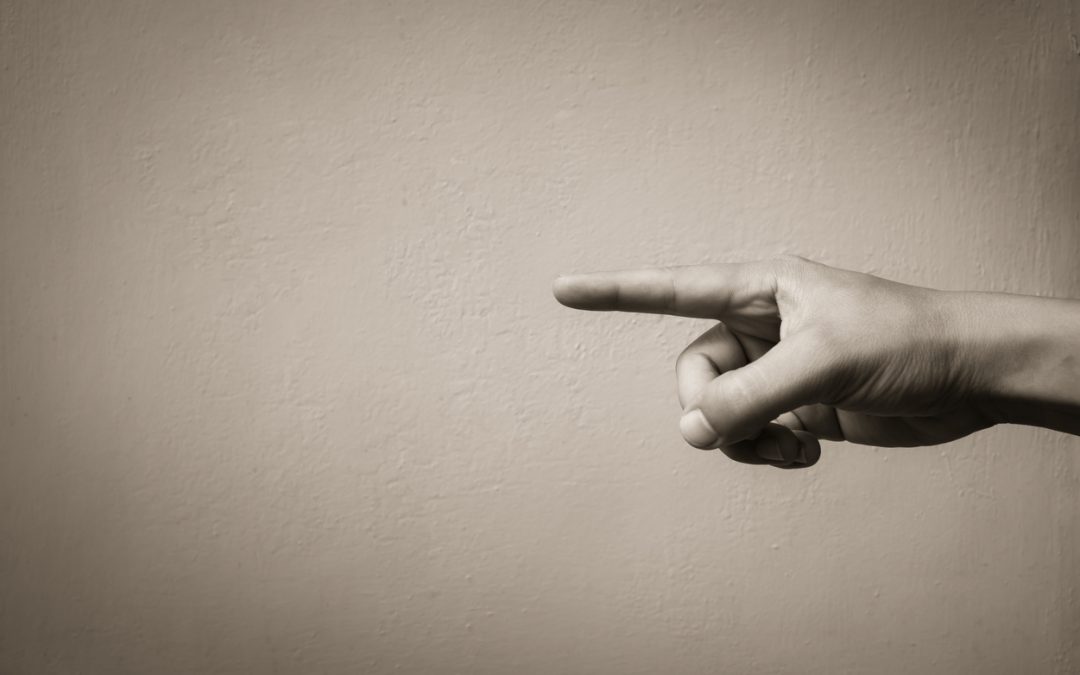One of the biggest criticisms I heard right after I committed an act of domestic violence was that I lacked accountability for what I’d done. Looking back, it was a fair evaluation. In fact, not taking full responsibility is common for those of us who have caused harm in a relationship.
Not taking full responsibility is common for those of us who have caused harm in a relationship.
Have you ever wondered why, when we hurt another person (something we’d never defend if it was anyone else who did the harm), we hold so tightly to being right? I did. That’s why the title of this book really drew me in: “Mistakes Were Made (but not by me): Why We Justify Foolish Beliefs, Bad Decisions, and Hurtful Acts” by Carol Tavris and Elliot Aronson.
This book explains many areas of life where this happens. It’s not just in domestic abuse and domestic violence that we self-justify. It happens everywhere: in non-violent relationships, politics, the legal system, the medical profession, the military, and more. The authors take us through scenario after scenario where a bad decision was made, a wrong action was taken, and then the person goes to great lengths to convince themselves and others that they were right.
The reason for self-justification is to avoid something called cognitive dissonance. Cognitive dissonance arises when the actions we take, the thoughts or beliefs we hold, and the decisions we make are not in alignment with how we think of ourselves. So we must justify those thoughts and behaviors to preserve our sense of being a worthwhile person. And we end up justifying, justifying, justifying rather than questioning or changing that action or belief that got us in trouble in the first place.
The authors use the metaphor of sliding down a pyramid throughout the book. Each action we take is like sliding down one side of a pyramid until we’ve moved so far out and away from the other person, that we’ve lost all hope of finding common ground.
What’s the harm in self-justification? Why is it so bad to want to defend what we’ve done? As the book points out, when someone acts violently, for example, they have to then justify what they did so that they can remain a “moral person” or that they were “right” in doing what they did. This eventually leads to telling themselves that the other person deserved it. And once we believe they deserved it, it allows for more violence.
We use self-justification because we think it makes our lives easier. The truth is, it doesn’t. We stay stuck in patterns of behavior that harm others and hurt ourselves. We miss the opportunity to grow and change in ways that would make our lives more fulfilling.
We use self-justification because we think it makes our lives easier. It doesn’t.
One of self-justification’s biggest traps is turning “what we did” into “who we are” in our minds because then we feel the need to justify even more strongly. In the beginning, my mind told me that taking responsibility for violence against my partner was the same as admitting that I was a bad person—an evaluation that I didn’t think was fair or accurate. Switching this to, “I am a good person who did a bad thing” was the key to escaping this trap. This mindset shift allows us to hear criticism and negative feedback without taking it personally—it’s about our actions, not the essence of who we are.
Switching to, “I am a good person who did a bad thing” is the key to escaping the self-justification trap.
The book asks us to consider 3 very simple yet important questions when faced with a situation where we feel the need to be right:
1) Could I be wrong?
2) Could I be making a mistake?
3) Could I change?
Knowing that it is our natural tendency to defend ourselves and justify our actions allows us to be more open to criticism, which then allows us to grow and achieve a better life. We can increase the benefit of good feedback by surrounding ourselves with wise people who will speak the truth into our lives, make it safe for them to be candid with us, and really listen to what they have to say.
This book is an eye-opener about the many different places self-justification can show up and the compelling reasons to fight against it. We can only create peace within ourselves and reach the goals we have by allowing ourselves and others to make mistakes. The book impressed upon me that mistakes are an inevitable part of life, but by admitting to them, we grow and make our lives better.
Many thanks to LF for writing this book review and letting me add some of my story on top of it. –Michael


Recent Comments